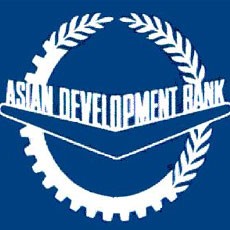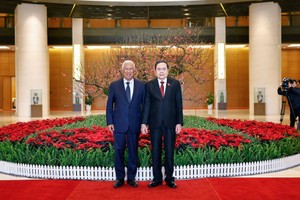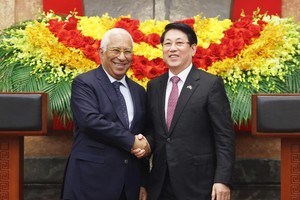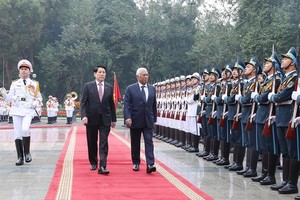
WASHINGTON, March 29, 2010 (AFP) - The global economic crisis should serve as a "wake-up call" for Asia to commit to reforms including an expansion of the social safety net, an executive at the Asian Development Bank says.
The Manila-based lender says that even though the region is recovering at a faster pace than expected, some 57 million people will remain stuck in poverty who otherwise would have emerged out of it in 2010.
"The impact of the crisis, purely on economic terms, I think we've weathered quite well and we're coming out of it, but the social impacts have been quite severe," said Rajat Nag, the managing director general of the bank.
"I think this is a wake-up call to make some fairly important structural reforms in Asia," Nag told AFP on a visit to Washington on Monday.
He said that Asia's developing economies should move to draw down their heavy reliance on exports to the United States, Europe and Japan and instead look to boost domestic consumption.
"In Asia, the export growth model served us very well throughout the last three decades. It's time to revisit that," he said. "Rebalancing growth in Asia really means that Asia has to become a consumer and not just a producer."
Such consumption can be stimulated by stepping up regional trade -- or persuading Asians to be more liberal with their money. Asians on average save around 30 percent of their gross domestic product (GDP), well above other regions.
Savings "will not come down just by our talking about rebalancing growth. It will come down if we can offer a credible social protection network," Nag said.
While several of the more advanced economies have set up wide-ranging health care systems, most Asians tend to save as an insurance against hardships.
The Asian Development Bank is expected next month to raise its 2010 growth projections for the second time.
In December, it said that the region would grow at 6.6 percent this year. The bank's estimates do not cover Japan, a highly developed economy and key contributor to the lending institution.
But Nag counseled caution on lifting stimulus measures, which many economies took after the economic crisis erupted in 2008 with the implosion of the US housing market.
"The recovery is less than robust but more than fragile," Nag said. "We think the fiscal stimulus measures should stay in place for a while yet."
Nag said that China and India would help lead the way with strong growth. Newly industrialized economies such as Hong Kong, Singapore, South Korea and Taiwan -- which took severe blows due to the downturn in exports -- are also all expected to be in positive territory.
He said that Indonesia and Vietnam were also faring well. Vietnam is one of the few Asian nations with serious worries about inflation, leading it to devalue its dong twice since late 2009.
Nag did not expect any downgrade for Thailand, saying that there were no signs that foreign investors were fleeing the kingdom during its latest bout of political chaos.
























